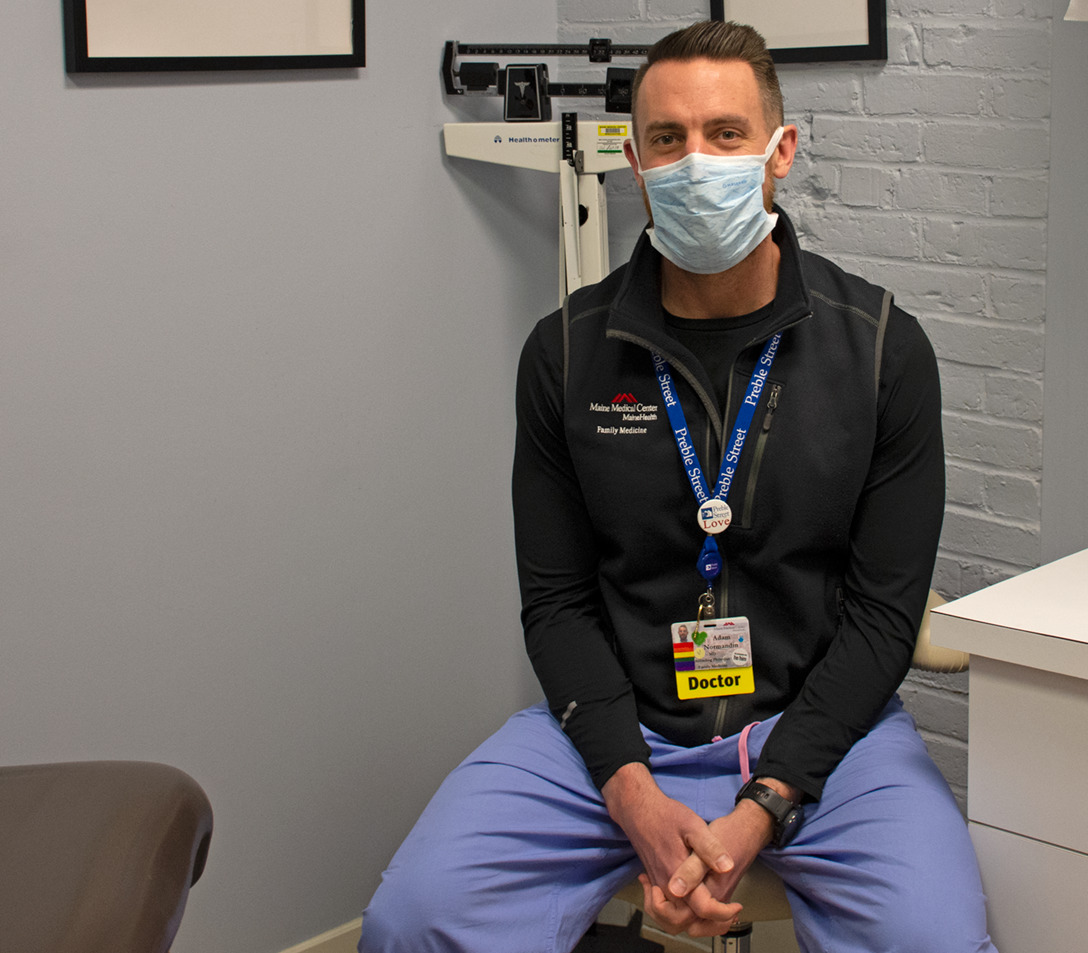People experiencing homelessness face devastating physical and mental health consequences and higher rates of chronic illness than their peers who are housed. Yet, they also face higher barriers to accessing critical healthcare and treatment. To address these issues in Portland, Preble Street, Maine Medical Center (MMC), and community partners opened the MMC-Preble Street Learning Collaborative (MMC-PSLC) in January 2017. The MMC-PSLC provides low-barrier and barrier-free access to health services, care coordination services, and education. Staff and clinicians at the MMC-PSLC work to ensure that our most vulnerable neighbors receive the care they need when they need it most.
“The opening of the MMC-PSLC is one of the proudest moments of my career,” says Mark Swann, who has served as Executive Director of Preble Street for 30 years. “Our organization has a lot of partnerships with smart and strong organizations, and one of the most important is the relationship we developed with Maine Medical Center — a partnership that continues to evolve and grow in ways that fulfill the missions of both organizations, provide critically-needed care to our clients and patients, and serve the needs of the community-at-large.”
Clients who come to the MMC-PSLC for healthcare also work with Preble Street staff who provide intensive case management to patients and help connect them to shelter, housing, clothing, and other resources to help them work toward goals. Healthcare at the MMC-PSLC evolves along with the needs of the community, and medical providers address issues ranging from wound-care and frostbite to substance use disorder and COVID-19 prevention and testing. “One of our key principles is being flexible and responsive to the needs of our community,” says Adam Normandin, MD, at Maine Medical Center who serves as Outreach Director at the MMC-PSLC. “For example, five years ago, we were only beginning to learn about the opioid crisis facing our community. I never would have imagined that I can sit here today, proud of the crucial role we play in teaching future healthcare professionals to care for some of the most vulnerable people in our community who are battling substance use disorders. I am not sure what the next battle will be, but I can promise that we will be in the trenches ready to do our part to address it.”
Pictured: Adam Normandin, MD, at the MMC-PSLC

